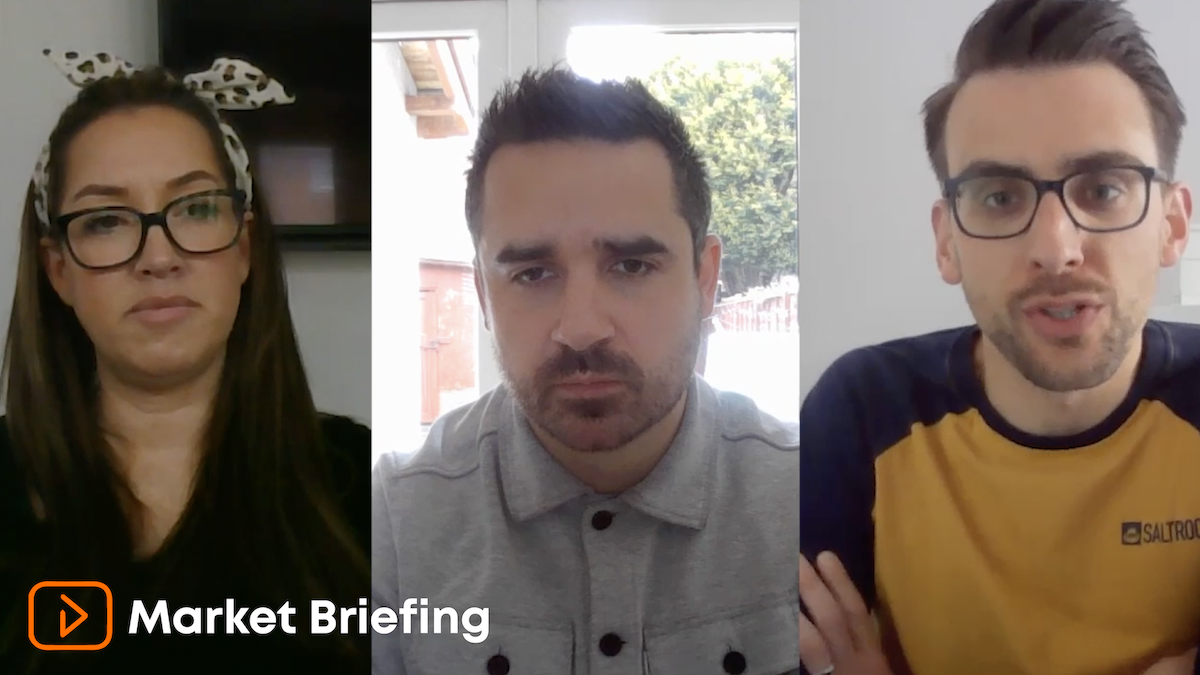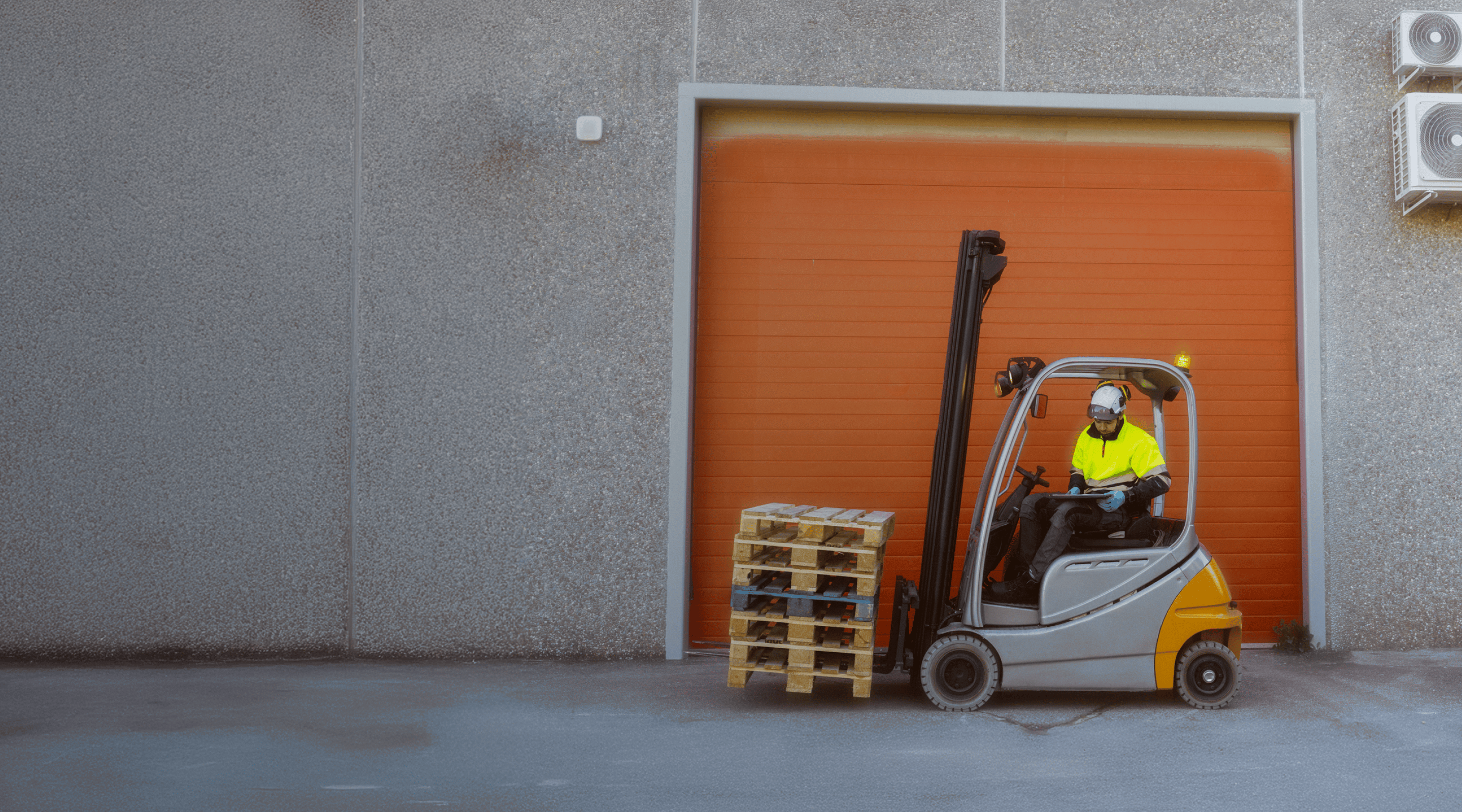Out of all industries, it’s hard to think of one that’s had a harder 2020s than hospitality. The pandemic followed by crushing inflation and costs have seen many pubs, restaurants and hotels go under. However, from delivery services to staycations, we have also seen countless examples of creativity from business owners doing whatever they can to keep their business going.
As the sector looks to bounce back from a barrage of challenges, accountants and banks will have an important role to play. To that end, our latest Market Briefing aims to add some colour to the picture of hospitality’s recovery and explore how accountants can work with banks to help their clients.
Our hosts, Matt West (Relationship Manager in the South West) and Katie Roberts (Senior Relationship Manager in Yorkshire), are joined by Morgan Keating, Allica Bank’s Specialist Relationship Manager for the Licensed & Leisure sector whose vast hospitality experience has been invaluable for our customers since he joined Allica Bank.
Energy costs are the number one challenge in hospitality today
“Hospitality has probably been one of the worst hit by the increase in energy prices,” Morgan explained, “and it’s having a huge impact on profitability and sales. The longer this saga goes on, it’s going to become ever more challenging for businesses to continue trading profitably.”
He shared some valuable insights about how Allica Bank is handling energy costs when it comes to deals and proposals. “We tend to sensitise energy costs; looking at what they were in 2019 and 2020, we might double or treble them based upon discussions with the client and their accountant.”
“It’s great if clients and their accountant present us with as much information as possible about their energy prices and how they’re lowering consumption.”
Katie asked Morgan to dig a little deeper into the ways hospitality businesses are mitigating energy consumption.
“We’re seeing a whole host of approaches, from energy saving lightbulbs to a client using manure to heat a new swimming pool!”
There are also more black and white options, for example pubs and restaurants closing earlier “because there’s just not sufficient trade and it’s no longer viable.” While reducing opening hours absorbs the pressure on costs, it also impacts revenues and, downstream, staffing and salaries. Some businesses have no other choice.
“Hotels, in their lean periods, have closed off blocks of 20 or 30 rooms so they don’t have to heat or light that area of the hotel.”
“There are new methods that businesses are picking up from international markets, as well. The UK has been lagging behind; a few clients have been going out into Europe to see what they’re doing and whether they can implement it back home.”
One size never fits all, of course, as Morgan noted: “mitigating energy consumption is often easier with newbuilds and it’s a lot more costly and challenging in older buildings - especially if they’re listed.”
What support is available for hospitality businesses?
Cutting energy use “supports businesses in a cost sense, but it’s also environmentally friendly,” Katie noted. “That’s so high on the agenda right now, so is there government support for hospitality businesses to make these changes?
“As a whole industry,” Morgan explained, “there isn’t enough support from the government to absorb the significant increase in energy costs. On a localised basis, many councils - for example, in Wales - have supported our hotel clients with grants and even asked them to help implement similar models in Local Authority buildings.”
Hope for government support is definitely out there, but it’s more likely to be found at a local or regional level rather than national. If you’re working with hospitality SMEs, it’s well worth speaking in detail with their councils to find out what kind of support could be available.
How to survive staffing shortages
Labour shortages are really hitting hospitality, whether that’s part-time and casual or full-time salaried roles. “The hospitality industry has been one of the worst hit by the current labour issues. There’s a total lack of suitable staff available out there, which, of course, has its own inflationary effects on costs as well.”
“Staff costs are increasing significantly and the ‘Brexit effect’ is still damaging the industry.”
Some businesses, Morgan explained, have resorted to having “less reliance on staff and more on automation, because businesses simply can’t afford to employ them or find sufficient staff. Some spas and leisure facilities are reducing rooms and replacing them with expensive massage chairs. There’s a bigger upfront cost, but the ongoing cost is significantly reduced and therefore, the gross margin - long-term - is much better.”
“If you’re running a top-end spa but reducing staff numbers,” said Matt, “it’s a really fine margin and a difficult balancing act between costs and customer experience.”
“They’re used to that,” Morgan reassured him, “it’s a constant balancing act. Little things that save a few hours every week, every little bit helps. For business owners, the challenge is in deciding who to listen to and finding which option works best for the business.”
“Long-term, AI could bring cost savings, but it’s only big corporates who are able to implement it and benefit right now.”
The real challenge, as Matt and Katie both noted, is that SMEs don’t tend to have the capital reserves to invest in automation - especially not right now. It’s a great fix for the big guns, but implementing automation at any significant scale simply isn’t viable for smaller hospitality businesses. They can’t afford to save money, it’s a cruel Catch 22.
Inflationary pressure is hitting the top line, but not dramatically
Reduced demand is apparent for a lot of hospitality businesses, but “far less than we envisaged - demand in some areas has stayed consistent.”
Staycations, for example, “were predicted to drop significantly, but they’ve remained strong and above pre-COVID levels. There are, of course, some casualties, but we haven’t seen as many casualties or liquidations within the market, though.”
“Spending still seems pretty high, considering the industry had to absorb the return to normal VAT levels after the pandemic measures dropped it to 5%. Lots of our businesses, in particular, have remained pretty resilient. The consumer spend is still there, but I think it’s going to have an increasing impact as the year progresses.”
The state of the lending market for hospitality businesses
Lending to hospitality businesses has typically been a tricky market, so Matt and Katie were keen to see if Morgan had a view on what’s working well for businesses who have sought funding.
“We’re looking for good experienced operators - someone who’s been operating one unit profitably for a number of years and looking to refinance - or individuals who are looking to acquire new businesses.
“Many incumbent banks don’t have any appetite for the sector, but we do.”
“We know there are lots of people out there who have got cash and are ready to take advantage. We’re there and prepared to finance people who are looking to acquire second, third, or fourth units.
“There’s often cost savings that can be made then, as well. While they might be buying at 10x EBITDA, they can easily save £100,000 because they’ve already got sales, marketing, and finance functions within the business. We can then add those costs back when we’re looking at the level of profitability that they’re likely to generate with the acquisition.”
Can new entrants to the hospitality sector expect funding?
Morgan shared a cautious view on the market for new business owners and buyers. “It’s a really challenging time for first-timers looking for finance. My advice would be to partner up with someone who has been there and done it before, someone who has got the experience and, hopefully, the cash to help.”
“Inevitably, if it’s your first acquisition, there’s going to be challenges and unforeseen issues and, very often, unforeseen costs just on the purchase itself.”
“There are plenty of people out there who have got cash and are willing to partner up with good people who have experience in the industry, even if it’s not through ownership.”
Where to go for advice and support as a hospitality business owner
Having a strong network is of paramount importance, Matt stressed. After all, “it’s not just about customer experience, it’s about having a handle on your numbers as well.” This is where accountants can really shine for their hospitality clients.
“Accountants, valuers, and the agency side of valuation firms are a really good source of support,” Morgan noted. “They’ve got their finger on the pulse of the industry and know what’s going on in the market almost in real-time.”
Morgan also suggests considering consultants - “get their advice for six or 12 months, especially if it’s a new acquisition; it will be really beneficial. They can help you get on a good footing and identify savings and improvements to the top and bottom line.”
Hospitality SMEs are resilient, they deserve more support
Whether it’s from the government or banks and accountants, hospitality businesses have more than earned their attention and support, having been at the sharp end of the recent economic challenges.
The resilience they’ve displayed deserves enormous credit and we, as partners to these businesses, need to provide thoughtful support and add value wherever possible. Hopefully this Market Briefing inspires some positive ways to support your hospitality clients in the coming months.
As always, you can reach out to Allica Bank’s dedicated relationship managers - including our Licensed and Leisure specialist, Morgan - for a more detailed chat.





